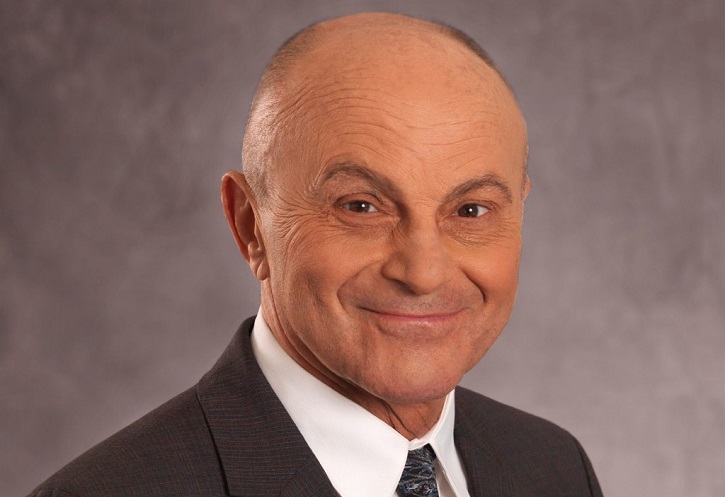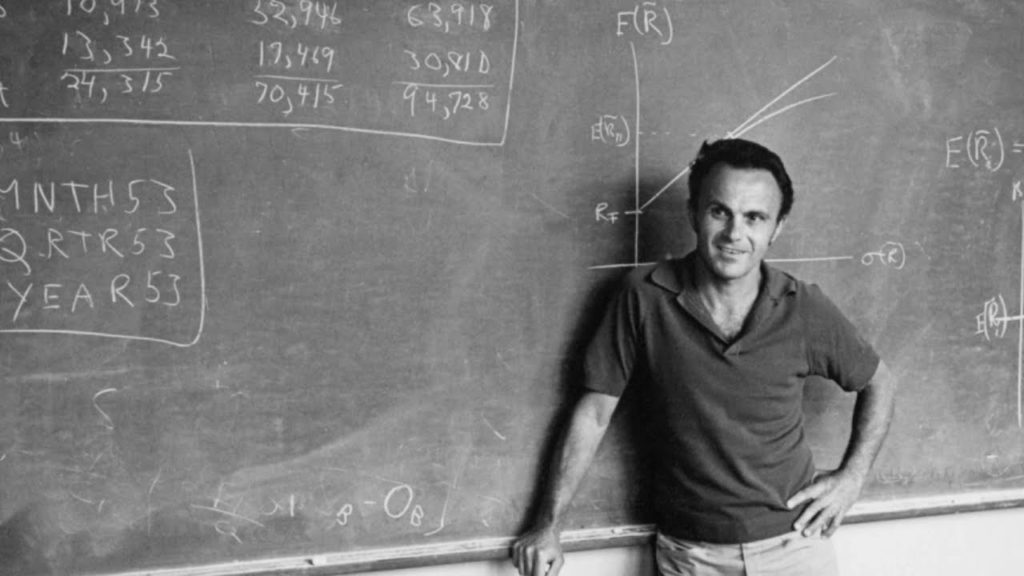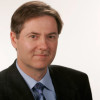125: Eugene Fama on the Efficient Market Hypothesis, the Feds Fund Rate, Bitcoin and Daily Routines
“I went into academics because I didn’t want to go into anything that would affect my sports life.” – Professor Eugene Fama
Eugene F. Fama is Professor of Finance at the University of Chicago Booth School of Business. Professor Fama was awarded the 2013 Nobel laureate in economic sciences and is widely recognized as the “father of modern finance.”
Professor Fama’s research is well known in both the academic and investment communities. He is strongly identified with research on markets, particularly the efficient markets hypothesis. He focuses much of his research on the relation between risk and expected return and its implications for portfolio management. His work has transformed the way finance is viewed and conducted.
Eugene is a prolific author, having written two books and published more than 100 articles in academic journals. He is among the most cited researchers in economics.
In addition to the Nobel Prize in Economic Sciences, Professor Fama was the first elected fellow of the American Finance Association in 2001. He is also a fellow of the Econometric Society and the American Academy of Arts and Sciences. He was the first recipient of three major prizes in finance: the Deutsche Bank Prize in Financial Economics (2005), the Morgan Stanley American Finance Association Award for Excellence in Finance (2007), and the Onassis Prize in finance (2009).
Professor Fama was awarded doctor of law degrees by the University of Rochester and DePaul University, a doctor honoris causa by the Catholic University of Leuven, Belgium, and a doctor of science honoris causa by Tufts University.
Eugene is chairman of the Center for Research in Security Prices at Chicago Booth, which was founded 40 years ago to create the finest tools for tracking, measuring, and analyzing securities data. He is also an advisory editor of the Journal of Financial Economics.
Professor Fama earned a bachelor’s degree from Tufts University in 1960, followed by an MBA and PhD from the University of Chicago Graduate School of Business (now the Booth School) in 1964. He joined the GSB faculty in 1963.
Economists:
In this episode, Professor Fama mentions: Gary Becker, Vernon Smith, John Cochrane,Robert Shiller, Campbell Harvey, John Campbell, Narasimhan Jagadeesh, Sheridan Titman, Cliff Asness, Louis Bachlier, Paul Samuelson, Benoit Mandlebrot, Robert C. Merton, Fischer Black, Myron Scholes, Merton Miller, Harry Roberts and Kenneth French.
Economics:
In this episode, Professor Fama mentions: EMH, anomalies, Momentum Effect, January Effect, Options Pricing Model, Price Earnings Ratio, Federal Reserve, Fed Funds Rate, reserves, reserve requirements, lending mechanism, quantitative easing, economic activity, bitcoin, speculation, medium of exchange, Ripple and blockchain.
Professor Fama’s Mentors:
- Merton Miller, Harry Roberts and Benoit Mandelbrot.
Individuals were very important to me especially Merton Miller and Harry Roberts. And Benoit too. – Professor Fama
Find out:
- How studying economics in the 1960s differs to present day.
- What is EMH and how it relates to the random walk and the submartingale process.
- The beginning of mathematics in economics in the 1960s.
- Independent, identically distributed – a more restrictive view of EMH.
- How prices and returns are so noisy that it is difficult to identify stock-picking skills.
- About stock market anomalies.
- What is the problem in academics?
- About the Federal Funds Rate.
- Does the Federal Reserve Bank or the market control the Fed Funds Rate?
- If there is a lending channel.
- Do we need a Federal Reserve bank?
- About Professor Fama’s views on Quantitative Easing (QE).
- About Professor Fama’s hobbies and how he uses them to regain balance in his life as an economist.
- Why Eugene Fama went into academics.
- Find out about Eugene’s daily routines.
- About Bitcoin.
On the Problem in Academics:
“There is a problem in academics. Everybody wants to publish papers. That’s the way they advance and get tenure and get higher salaries. They also get noticed on Wall Street for doing it. So there’s an incentive to dredge the data and come with things that will be attention-grabbing but won’t necessarily be there in new data and aren’t the basis for new strategies.” – Professor Fama
On Theoretical Models
“Robustness is the name of the game. All scientific theories have anomalies otherwise they’re not theories, they’re reality.”
“All science is you propose models, you test them and you come up with some stuff that says that says this works pretty well and then you come with other stuff that says well it doesn’t work very well on this particular so called anomaly. And so you either tweak the model to incorporate that or you just accept it as one of the shortcomings of the model. That’s why you called them models.”
“You have to be careful. It has to be systematic empirical work. You can’t just go work with anecdotes. Anecdotes are not empirical work.”
On the Fed:
“What goes on when you go to work for the Fed or you get onto the Board or whatever, it’s the invasion of the Body Snatchers. Whatever you thought before becomes irrelevant and you buy the party line or you buy the line that says they have a lot of power.”
“I don’t there ever was a lending channel but there certainly isn’t one now.”
“The main job of the Fed is to control inflation. Unfortunately, in the current regime they can’t do that.”
On Bitcoin:
- I’m suspicious about it as a unit of account because it has such an uncertain value. Monetary theory basically says that you want a unit of account that has a certain value.
- It’s just like paper currency. If no body is willing to use it, it becomes valueless.
Thanks to Conor Murray for the question on Bitcoin!
On Writing:
- There’s no easy way to do it. I do a lot of writing with Kenneth French. We always re-write these papers that we put out at least twenty or thirty times front to back. And you struggle over every word and you try to say stuff as simply as possible because by saying it simply you reach more people than saying it in a more complex way.
- Work on it. Really read it. Get other people to read it and get their reactions.
- Organize how you present stuff. You want a brief introduction. Most papers tend to have long introductions. Get right into the guts and keep it as simple as possible for as long as possible so that you lose the fewest number of people.
Movies:
Patreon
If you’re a fan of the podcast and would like to show your support in anyway, please check out my Patreon page at patreon.com/economicrockstar where you can sign up for any of the awards for as little as $1 a month or you can simply follow me on the Economic Rockstar Facebook page or on Twitter or simply recommend the show to a friend, especially if they have never had the opportunity to study economics.
Podcast: Play in new window | Download




 061: Roger Whitney on the Myths to Retirement Planning and the Lazy Mans Method to Saving
061: Roger Whitney on the Myths to Retirement Planning and the Lazy Mans Method to Saving 098: Kirk Du Plessis on Options Trading and Creating on Online Teaching and Trading Platform
098: Kirk Du Plessis on Options Trading and Creating on Online Teaching and Trading Platform 015: Niels Kaastrup-Larsen on Trend Following Strategies and Stock Market Turmoil Ahead
015: Niels Kaastrup-Larsen on Trend Following Strategies and Stock Market Turmoil Ahead 155: Lotta Moberg on Refugee Cities and the Blockchain Industry as Special Economic Zones
155: Lotta Moberg on Refugee Cities and the Blockchain Industry as Special Economic Zones 137: Rakesh Ramachandran on Crypto Economics and How Knowledge of Austrian Economics Created His Blockchain Company QBRICS
137: Rakesh Ramachandran on Crypto Economics and How Knowledge of Austrian Economics Created His Blockchain Company QBRICS 094: Daniel Crosby on Stock Market Investment Errors and the Price Earnings Ratio
094: Daniel Crosby on Stock Market Investment Errors and the Price Earnings Ratio 087: Asgeir B. Torfason on the Economy of Iceland and Explaining Negative Cashflows in Banks
087: Asgeir B. Torfason on the Economy of Iceland and Explaining Negative Cashflows in Banks 056: Campbell Harvey on Improving Significance Tests, the Importance of Positive Skew and the Future of Blockchain
056: Campbell Harvey on Improving Significance Tests, the Importance of Positive Skew and the Future of Blockchain 005: Hector Avellaneda on Buying Gold to Protect Your Wealth from a Dollar Crisis
005: Hector Avellaneda on Buying Gold to Protect Your Wealth from a Dollar Crisis 016: Jack Schwager on How You Can Become a Market Wizard with Fundseeder.com
016: Jack Schwager on How You Can Become a Market Wizard with Fundseeder.com